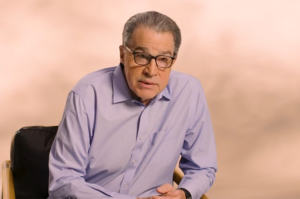New Mexico bill would lead to assisted suicide tourism, activists warn

[Update: Jan. 7, 2019] Alex Schadenberg, chair of the Euthanasia Prevention Coalition, updated his remarks in a January 4 blog post, saying that he had misread the New Mexico legislation as it was awkwardly worded and that his previous analysis was wrong. It does not promote suicide tourism, he now says.
"All assisted suicide bills include a list of requirements to approve a person for a lethal prescription. That list always includes ... a residency requirement," he said.
"HB 90 has a list of requirements but it does not include a residency requirement. But HB 90 does define 'Adult' as a resident of the state who is eighteen years of age or older."
A problem exists, he went on to say: "Section 3 in HB 90, describes the qualifications for assisted suicide, but it does not use the term 'Adult,' it uses the term 'individual.'
The only time the word "adult" is used is in the form requesting medication to end life.
[Original story below]
A proposed bill in New Mexico would essentially make assisted suicide possible in all 50 states and make the southwestern state a tourist destination for those wanting to end their lives, some say.
Recent reports indicate that Bill HB 90 in New Mexico, which will be taken up for consideration in 2019, permits assisted suicide for psychiatric conditions, allows it to be done to someone with an undefined terminal prognosis, and can be administered by nurses and physician assistants. The bill even allows the practice to be approved via telemedicine.
Contained in the provisions of the proposed legislation is the loosened and subjective phrase “foreseeable future” as opposed to a fixed amount of time, like six months, when defining "terminal illness," grounds that could lead to state approval for an assisted suicide.
The bill does not require the person seeking to end his or her life to “self administer,” thereby permitting euthanasia. People who are not doctors, such as nurses and physicians assistants, are among those allowed to prescribe lethal drugs.
Pro-life advocates and observers of the movement to allow such practices are decrying the bill as among the worst they have seen.
"Assisted suicide advocates pretend they just want a very limited death license, a safety valve, as they put it, for suffering in the terminally ill that cannot otherwise be alleviated (almost always, a false premise)," noted the Discovery Institutes Wesley Smith, in a National Review blog post Thursday.
"The problem is, their laws and proposals never actually read that way. And now a legalization bill in New Mexico shows the true radical heart of the assisted suicide/euthanasia agenda."
Writing at LifeNews, Alex Schadenberg, chair of the Euthanasia Prevention Coalition, said that the bill does not contain a residency requirement, allowing those who do not live in New Mexico to procure the services, and is the most dangerous assisted suicide legislation he has ever seen.
"Therefore, if legalized, Bill HB 90 will allow suicide tourism and legalize assisted suicide in all 50 U.S. states," he explained.
Opponents of assisted suicide and euthanasia have often argued that once extreme cases are allowed, it will only continue to grow, abuses will occur, and that a nefarious goal underpins the push to see the practice embraced in society.
"Let’s not be innocent, legalizing assisted suicide leads to the further degradation of people with disabilities and other people who are medically vulnerable while creating new paths for elder abuse and the perfect legal defense for deaths not considered by the assisted suicide debate," Schadenberg continued Wednesday.
Likewise, Smith concluded: "The assisted suicide movement is akin to a death cult. The ultimate ideological point isn’t to provide a last resort escape for the imminently dying, but to enable more people to get dead more quickly. That is why the protective guidelines constantly expand — sometimes, as here, even before legalization. Everything else is subterfuge."
Michelle Lujan Grisham, the governor-elect of New Mexico who will take office in January, said during the 2018 election cycle that she supports the legalization of assisted suicide.
In 2017, the New Mexico Senate narrowly defeated a bill that would have legalized the practice in that state, legislation current governor Susana Martinez, a Republican, had promised to veto.



























